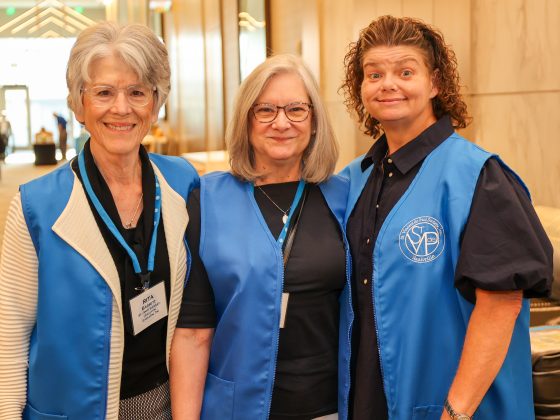Today’s Society of St. Vincent de Paul, with nearly a million members worldwide, may fairly be said to have fulfilled Blessed Frédéric’s vision of a “network of charity and social justice encircling the world.” [Rule, Part I, 2.2] Let’s pause to consider, though, that it is neither our combined strength, nor less our loud voices that impact the world, but our small and humble acts, performed by two or three in His name, which quietly bear witness to the power of God’s love.
From the earliest days, Frédéric recognized the importance of small Conferences, observing that rapid growth had caused the first Conference “lose in intensity what [it gained] in expansion.” He said the meetings were “nearly always concerned with business” and seemed long. [90, to Curnier, 1835] Of course, he did not propose to reduce the number of members, but to increase the number of Conferences; Conferences small enough to serve personally, and to grow together in holiness, as friends.
Perhaps he was unconsciously aware of the now well-observed psychological phenomenon of “diffused responsibility,” in which the more people are present, the less responsibility each one feels to offer help, even when help is desperately needed. Vincentians are called to form relationships based on trust and friendship; to see in our neighbors the face of Christ; to serve them, person to person, for love alone.
Our Conferences are first and foremost communities of faith, not administrative subdivisions of a Council that commands them. On the contrary, it is the Council that exists to support the Conference, so that each Conference can do its work, as Frédéric put it, “by your own strength, under the inspirations of your heart, under the influence of local circumstances…” [90, to Curnier, 1835]
For its part, the Conference supports its members, who “meet as brothers and sisters with Christ in the midst of them, in Conferences that are genuine communities of faith and love, of prayer and action.” [Rule, Part I, 3.3] Members, in turn, see and serve the poor, each of them individually. It is the home visitors, not the Society writ large, who are assumed to have special insight into the best way to help.
There is, as the saying goes, strength in numbers, and we can rightly be proud of the great and providential presence of the Society of St. Vincent de Paul around the world. But as Thomas Paine once said, “‘Tis not in numbers, but in unity, that our great strength lies.” [Common Sense]
Indeed, our unity is expressed not in numbers, but in faith, in friendship, and in service. As our Rule says, “In every Conference throughout the world and in their personal lives, Vincentians raise their prayers to God, united with the prayer of Christ, on behalf of one another and their masters the poor, whose suffering they wish to share.” [Rule, Part I, 2.3]
Contemplate
Do I always accept my personal responsibility to serve, no matter how many other people are around?




I have much guilt when I turn someone away who asks for help. I do when I feel used by that person. When I take the responsibility of helping that individual, I am angry at myself , it comes out to the person and I go through terrible guilt and shame for my actions. Are we to say YES to anything, anyone? Now, I have much depression caught up in anxiety of being selfish, of which I am not.